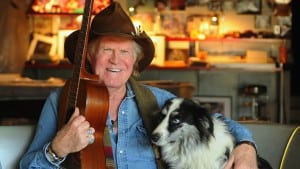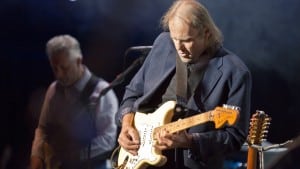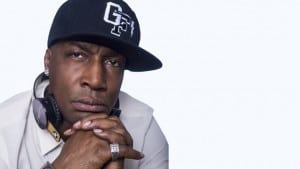There is a grit and glory to country music that is epitomized by the songwriting of Billy Joe Shaver, one of the original country outlaws who’s penned lyrics for Willie Nelson, Elvis Presley and many more. Shaver’s biggest achievement was the writing of 10 songs on Waylon Jenning’s 1973 album, “Honky Tonk Heroes” which is said to have started the country outlaw music movement of the 70’s.
The 75-year-old tour warrior intended to bring his talents to southern California for a show at The Coach House on Jul. 22. But unfortunately, according to his publicist, “Billy Joe Shaver has been advised by his doctor to receive a hip replacement sooner than previously recommended.”
Concert Guide Live had the pleasure of interviewing Mr. Shaver prior to the unforeseen cancellation, and would like to go ahead and share it with his fans.
“We just keep on going. We take some breaks sometimes, but not much,” Shaver said. “We’re in Ventura now, then heading to LAX to catch a plane back to Austin. I may even have time for a shower.”
Though never claiming household name status, musicians like Kris Kristofferson, The Allman Brothers Band and Bob Dylan greatly admire Shaver and have recorded his songs. Dylan even immortalized Shaver in his 2009 song “I Feel a Change Comin’ On,” singing, “I’m listening to Billy Joe Shaver and I’m reading James Joyce.”
Musicians are born with talent, but have to learn the ways of the music business. Long before writing songs for country’s biggest and best, Shaver was a man with a guitar and some songs, playing small venues and learning the ropes of the music industry while taking advice when he could get it.
“Early in my life, way before I got to Nashville, I was playing a place and I was having real trouble with the sound system,” he said. “Well, I was having a rough time with it and I was kind of letting everybody know about it. Not too much, but enough that this fella (I don’t know who he was), he just come over and he motioned for me. I took a little break, and he took me outside and he said, ‘Man, I want to give you some advice and you can take it or leave it,’ he said, ‘it’s up to you.’ Then he said, ‘Whenever you’re playing a show make sure that you don’t let anybody know that you’re having a bad time because people didn’t pay good money to see you have a bad time. You’re going to have to act a little.’ And I did, I had to act for a long time, as long as those crap mics were around. I took his advice and I’ve been that way ever since. It’s not phony, it’s just that you’re trying to make everybody happy and that’s a good thing.”
Shaver’s had to use that advice many times, working through life’s adversities while always being a touring musician. His life story reads like a country outlaw song; it has its fair share of sadness and trouble, but always a bit of optimism to keep the train moving forward.
Shaver was divorced twice and married three times to the same woman, Brenda Shaver. In 1999, Brenda succumbed to cancer and within a year of her passing Shaver’s son and guitar player, Eddy Shaver, died of a drug overdose. That night, Billy Joe still took the stage and played a show at the advice of his friend Willie Nelson, knowing the only way to get through the tragic events was to play on. In 2007, he was charged with shooting a man in the face outside of a bar near his home in Waco, Texas and was later acquitted by a jury, pleading self-defense. Shaver later wrote a song about the incident titled, “Wacko From Waco” that details the entire event.
Shaver’s most recent album, 2014’s “Long in the Tooth,” is his first in seven years. His songs present a man feeling the ups and downs of being a bit older and a bit wiser.
On “Long in the Tooth,” Shaver maintains his authentic songwriting style that can be found lacking in some modern country music. In the album’s song, “Hard to Be an Outlaw” which he sings with his longtime friend Willie Nelson, Shaver writes, “Some super stars nowadays get too far off the ground / Singing ‘bout the back roads they never have been down / They go and call it country but that ain’t the way it sounds / Makes a renegade like me want to terrorize the town.”
Shaver doesn’t think writing an authentic song is too hard. “The way I see it, there ain’t no rules, thank God,” he said. “The way I see it is, if I do about three chords and the truth, that’s good.”
As for the future of country music, Shaver is optimistic.
“Oh, it’s gonna turn over, about every twenty years or so it turns over,” Shaver said. “When I wrote that ‘Honky Tonk Heroes’ album that Waylon Jennings did, everything turned around and everybody started singing that way. It was really honest and rough. A lot of people didn’t like it. They didn’t think it would help, they thought it would hurt the country music business because they were into these cheating songs and sequins and things like that… It’ll turn over; I’m making a prediction that it will. I’m a prophet, but I don’t make no profit.”


